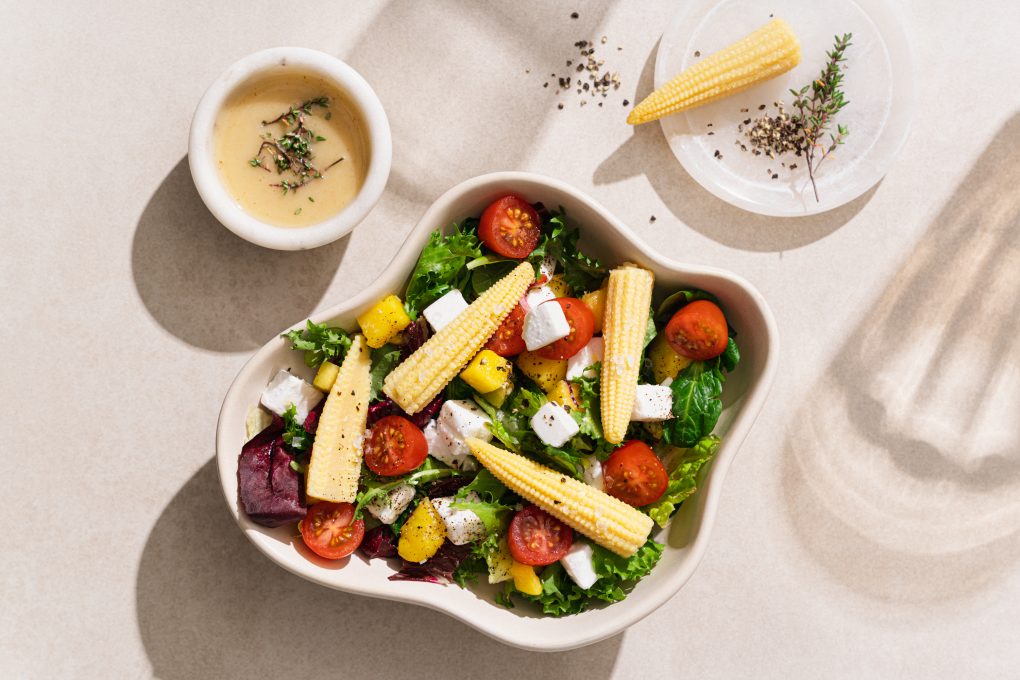
Peri-Workout Diet – the Key to Success
Nutrition of physically active people affects exercise capacity and the effectiveness of training. Knowing how to properly adjust your diet to exercise and what to eat while working out in the gym will play a key role in achieving the expected results.
What does a sports diet look like?
First of all, it should cover the demand for energy and all nutrients. A well-balanced diet should include an adequate supply of protein, carbohydrates and fats. It should be rich in vitamins, minerals and antioxidants due to increased stress, especially in the case of heavy training.
Due to the different nature of energy metabolic rates and the intensity of effort, the training diet for men performing exercises in the gym will look different than, for example, the training diet of a woman practicing rhythmic gymnastics. In addition to gender and type of discipline, when planning a diet for a person practicing sports, one should also take into account their health: chronic diseases, possible anemia and food hypersensitivity, or eating disorders.
The menu of the peri-workout diet should take into account the peri-workout supply, which is why it is important to monitor the energy supply in the daily food portion. In the case of prolonged effort, energy should also be supplied during the workout to prevent hypoglycemia and maintain the body’s efficiency.
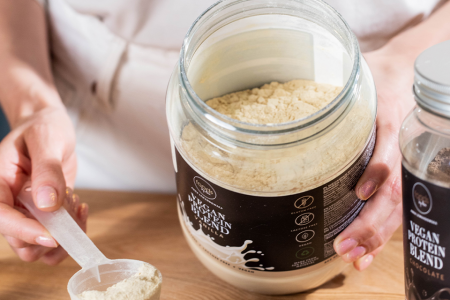
Carbohydrates and fats
The diet must be rich in carbohydrates as the primary source of energy. Stocks of polysaccharides that are used during training are stored in the muscle tissue in the form of glycogen. The increased supply of carbohydrates in the post-workout meal should supplement the energy reserves used, optimally leading to the supercompensation of muscle glycogen.
Carbohydrate sources:
– cereal products – rice, groats, wholegrain bread, oatmeal,
– vegetables – especially starchy ones, e.g. potatoes, sweet potatoes, carrots,
– fruit – bananas, peaches, apples, pears, grapes, mangoes, plums, dried fruits,
– smoothies based on fruit and vegetables.
The rules of the peri-workout diet assume higher consumption of simple carbohydrates after training in order to quickly replenish depleted glucose stores. The menu should include vegetables and fruit which are good sources of vitamins, minerals, and antioxidants. The optimal amount of these compounds will ensure proper muscle function, have a positive effect on performance and reduce oxidative stress. In case of shortages, it is worth checking which products contain the most nutrients we lack. When it comes to vegetables, vitamin A can be found in large amounts in carrots, and vitamin E in tomatoes, and so on.
A balanced diet cannot exclude the consumption of fats. They are necessary for the body, among others, as carriers of some vitamins. The menu should include sources of unsaturated fatty acids, which are rich in vegetable oils, olive oil and oily sea fish.

Protein
A peri-workout diet for people practicing sports, especially strength sports, should contain an appropriate distribution of macronutrients, taking into account the times of eating meals around training. When the training goal is to build muscle mass, a caloric surplus and an increased supply of wholesome protein will be necessary. Amino acids supplied with food, especially in the post-workout meal, will affect the synthesis of new proteins, support the regeneration of the body and the reconstruction of muscle fibers.
Sources of protein in the peri-workout diet menu:
– meat – poultry, beef, rabbit;
– fish – cod, salmon, trout, tuna, halibut, herring;
– seafood – shrimps, calamari, octopus;
– eggs – preferably from organic farming;
– legume seeds – chickpeas, lentils, beans, soybeans, peas, broad beans;
– protein supplement.
Protein is the basic nutrient involved in all processes in the body. It is the most important building block of muscles and is needed by the body in the right proportion depending on the lifestyle. A person has a need for the right amount of macronutrients, muscle mass is one of the determinants of this amount. The muscles of active people who train regularly have a much higher demand for protein than those of people who do not practice any sports. A balanced diet may not be enough for the first group. Protein supplements can be helpful, as they allow you to satisfy the insufficient supply of protein in the diet. For this reason, they are considered supplements. They are a great source of macronutrients for busy people. They effectively strengthen the exercised muscles, help them regenerate better and faster, and increase the effectiveness of the training.
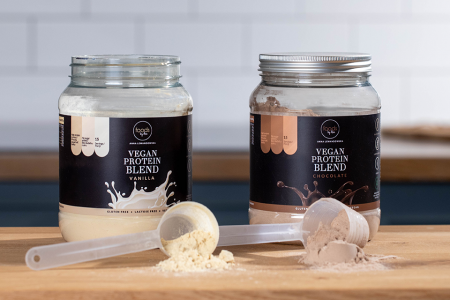
What are the types of protein supplements?
The most popular protein used in the production of supplements is whey protein, which is obtained from fresh cow’s milk. There is also casein, also of dairy origin, and beef originating from meat. However, people who do not consume animal products need not worry. They can take plant-based protein.
The best plant sources of protein are legumes. However, we must remember that in the case of a vegetarian diet, it is very important to properly plan meals to supplement all the essential amino acids. For this purpose, several types of vegetable proteins are combined to obtain a product that has a richer amino acid profile. For the best effect, legume seeds (beans, peas, lentils, soybeans) rich in isoleucine and lysine should be combined with cereals and their products: groats, rice, pasta, flour, bread, cereals, sunflower seeds, sesame seeds, pumpkin seeds or nuts.
My Foods by Ann protein supplements are based on pea and sunflower proteins. Therefore, they are an ideal proposition also for vegans, vegetarians and allergy sufferers, i.e. they will work for everyone. They do not contain gluten, lactose, added sugar, anti-caking and thickening agents. They have a great flavor (vanilla or chocolate) and have:
– balanced amino acid profile,
– low in fat, carbohydrates, and sugar,
– rich in dietary fiber,
– good solubility,
– natural thickening properties.
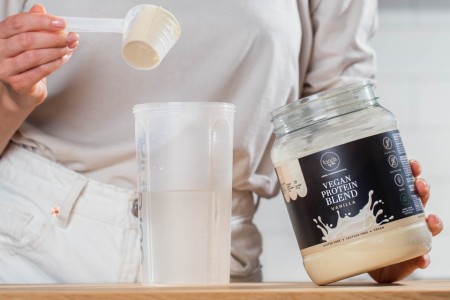
In what form should you have a protein supplement?
You can make a standard protein shake by adding the powder to water or a plant-based drink, but that’s not all! Protein supplement is great for in lots of delicious recipes:
– flavorful coffee,
– nutritious porridge,
– fruit shake,
– delicious pancakes,
– energy power balls,
– sweet bars.
Balance is key!
Supplements, also protein supplements, should only be an addition to a balanced diet, as they are designed to supplement deficiencies in the menu. They cannot replace healthy eating habits and become the main meal of the day, because it can be dangerous to your health. What’s more, too much protein in the diet can cause kidney problems.
Peri-workout diet is adapted to the needs of the body affected by physical effort. Improper balance of nutrients or deficiencies of mineral elements can negatively affect the functioning of the muscular, osteoarticular, circulatory, digestive, and nervous systems.
For people who need support in cooking, want to save a lot of time and have a guarantee of perfectly selected meals, I recommend my SuperMenu dietary catering, which in its diversity takes into account the nutritional needs of active people.





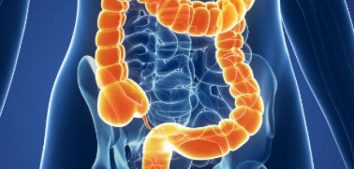

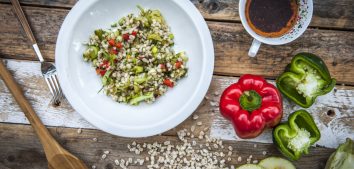
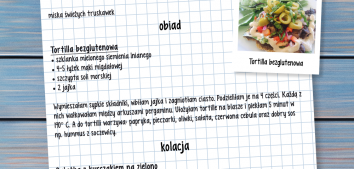
Comments No Comments
Join the discussion…